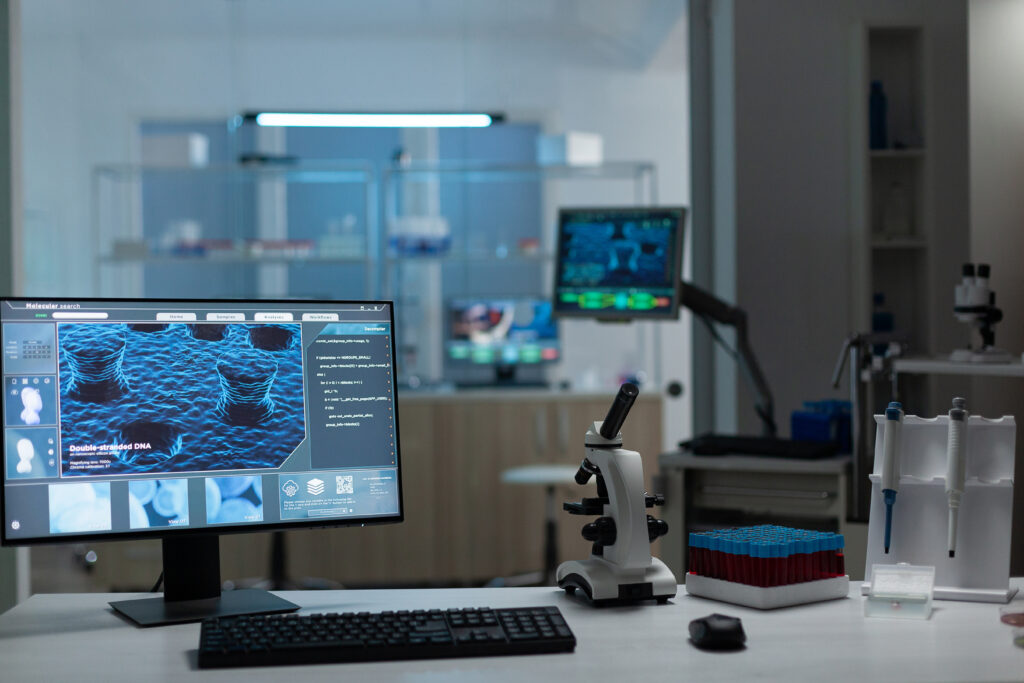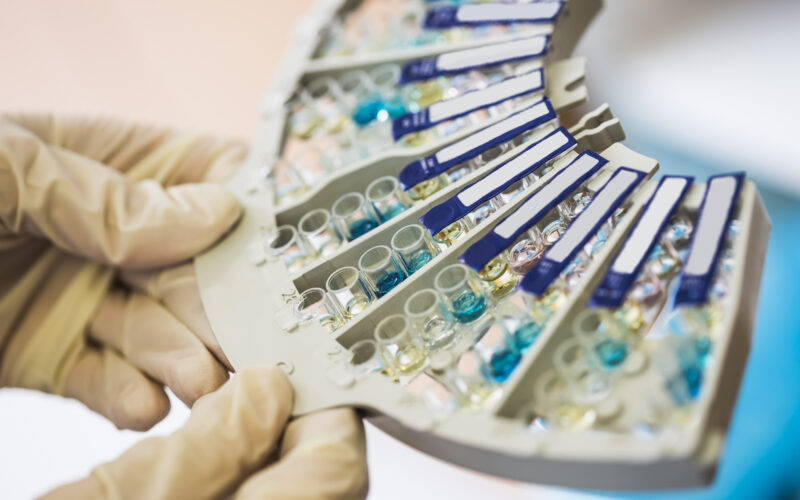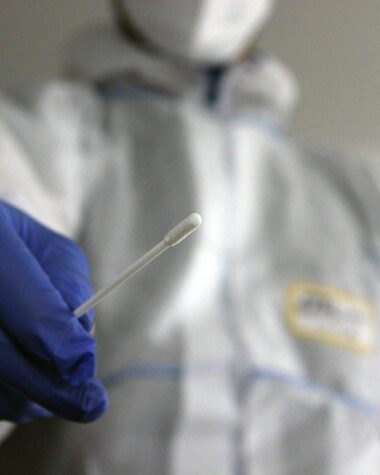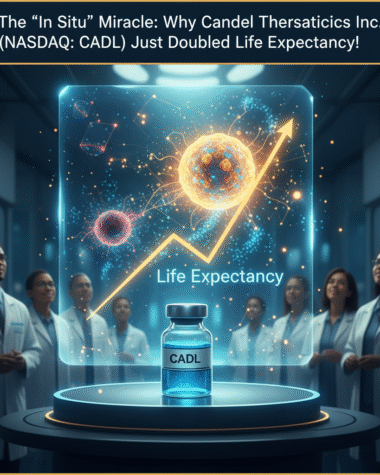ARS Pharmaceuticals (NASDAQ:SPRY) is a commercial-stage biopharmaceutical company headquartered in San Diego, California, focused on revolutionizing the emergency treatment of severe allergic reactions through needle-free innovation. Founded in 2015, the company was built on a mission to empower at-risk patients and caregivers by providing faster, simpler, and more accessible solutions to protect against anaphylaxis—a life-threatening allergic reaction that requires immediate intervention. ARS Pharma’s pioneering work centers on its flagship product, neffy®, the first FDA-approved epinephrine nasal spray designed to treat allergic emergencies without the need for an injection. By eliminating the fear and hesitation associated with traditional auto-injectors, ARS Pharma seeks to make life-saving treatment more approachable, especially for children and needle-averse patients.
The company’s scientific foundation lies in a deep understanding of nasal drug delivery and epinephrine pharmacokinetics. Its research and development team has spent years perfecting the formulation and device combination that allows epinephrine—a notoriously unstable molecule—to be delivered intranasally with the same efficacy as injectable forms. This innovation has the potential to redefine how severe allergic reactions are treated, offering both patients and healthcare providers a safer, more convenient alternative that could drastically improve outcomes in real-world emergencies.
ARS Pharmaceuticals’ strategic focus extends beyond the U.S., with international commercialization efforts underway in collaboration with ALK-Abelló, a global leader in allergy immunotherapy. Through this partnership, neffy is being introduced across key European markets, including Germany and the United Kingdom, as well as in other regions with high allergy prevalence. This global expansion aligns with ARS Pharma’s vision of making epinephrine more widely available in needle-free form, particularly in school systems, public venues, and households where rapid response to allergic reactions can mean the difference between life and death.
In addition to its commercial activities, ARS continues to invest heavily in research to strengthen the evidence base for neffy’s effectiveness. The company is conducting multiple real-world studies and post-market trials to demonstrate its clinical reliability in diverse patient populations. It also plans to extend its nasal delivery technology to new therapeutic areas, including other acute rescue indications where rapid drug administration is critical.
Under the leadership of its experienced executive team, ARS Pharmaceuticals has successfully transitioned from a development-stage biotech to a fully commercial biopharmaceutical company listed on the Nasdaq under the ticker symbol SPRY. With strong backing from institutional investors such as RA Capital Management and OMERS Life Sciences, the company is financially positioned to expand marketing, education, and distribution initiatives globally. The recent completion of a $250 million senior secured loan facility underscores investor confidence in its long-term vision and commercial potential.
As allergy-related emergencies continue to rise worldwide, ARS Pharmaceuticals stands at the forefront of a new era in anaphylaxis management—one defined by accessibility, innovation, and patient empowerment. By combining scientific rigor with user-friendly design, the company is reshaping how life-saving epinephrine treatment is delivered, aiming to ensure that no patient hesitates in a moment that matters most.
A $250 Million Lifeline to Fuel Growth — and Leverage
On September 29, 2025, ARS Pharmaceuticals, Inc. (NASDAQ: SPRY) announced that it had entered into a senior secured term loan facility of up to $250 million with affiliates of RA Capital Management, its largest shareholder, and OMERS Life Sciences as lenders. The company immediately drew $100 million from the facility, aiming to accelerate the commercial growth of its flagship product neffy®, a nasal spray for the emergency treatment of severe allergic reactions, including anaphylaxis. While this financing provides much-needed capital for expansion, it also represents a high-stakes move that introduces significant debt risk into a company still operating at a loss and dependent on a single product for nearly all of its revenue.
The new funds are intended to boost marketing, distribution, and medical affairs efforts to solidify neffy’s position in the market. The company has also outlined plans to generate and share real-world data that could enhance prescriber confidence and payor coverage. While these are sound strategic initiatives, the heavy reliance on borrowed capital to fund them exposes ARS to future financial strain if its sales trajectory fails to meet expectations.
The transaction was supported by Wilson Sonsini Goodrich & Rosati, with patent counsel led by Val Zunic, along with Mike Hostetler and Kaia Parenti, underscoring ARS’s commitment to protecting its intellectual property portfolio. Yet, despite the high-profile financing and strong investor backing, concerns remain about whether the company’s balance sheet can sustain this level of leverage amid ongoing commercial uncertainty.

CHECK THIS OUT: Tiziana (TLSA) Surges 143% in 2025 and Immuneering (IMRX) Reports 86% 9-Month Survival in Pancreatic Cancer.
neffy®: A Bold Innovation, but a Narrow Revenue Stream
ARS Pharmaceuticals’ business model currently revolves almost entirely around neffy®, the first FDA-approved needle-free epinephrine nasal spray designed to treat life-threatening allergic reactions. The drug represents a breakthrough alternative to traditional injectable epinephrine pens such as EpiPen and Auvi-Q. However, the company’s dependence on a single product presents a major risk. If adoption slows, competition intensifies, or regulatory issues arise, ARS’s entire revenue structure could collapse.
In Q2 2025, the company reported $12.8 million in neffy product sales, contributing to total quarterly revenue of $15.7 million. However, the same period saw net losses of $44.9 million, primarily driven by elevated marketing and administrative expenses exceeding $54 million. These figures highlight a concerning imbalance: ARS is spending nearly four dollars for every one it earns. The new loan facility may provide temporary breathing room, but it also amplifies the financial pressure to deliver exponential growth quickly.
Moreover, while ARS claims 93% commercial insurance coverage for neffy, with 57% of policies not requiring prior authorization, the gross-to-net retention rate of 52% indicates significant price concessions, rebates, and discounts that erode profitability. If these margins tighten further — as often happens when pharmaceutical payors negotiate harder or competitors enter the market — ARS’s profitability timeline could be pushed even further into the future.
Debt-Fueled Expansion: Strategic or Risky Overreach?
The $250 million loan agreement, though seemingly a vote of confidence from major investors like RA Capital, also signals that ARS may be running out of less costly financing options. As a commercial-stage biotech still unprofitable, the company faces limited choices: either dilute shareholders with new equity issuances or take on debt that must eventually be repaid with interest. This particular term loan is secured, meaning the company’s assets — including intellectual property — could be used as collateral.
This structure introduces leverage risk. If neffy sales underperform, ARS could find itself servicing debt with diminishing cash reserves, forcing difficult trade-offs between debt repayment and continued investment in commercialization or R&D. As of June 2025, ARS held $240.1 million in cash, cash equivalents, and short-term investments, but that cushion will erode rapidly if burn rates remain high. The new funding will likely accelerate spending rather than slow it, increasing the pressure to hit aggressive sales milestones within the next six to eight quarters.
In an environment where biotech valuations have already compressed and capital markets remain selective, this approach could prove dangerous. Debt obligations might constrain flexibility just as ARS needs it most — particularly if macroeconomic conditions tighten or lenders enforce stricter covenants.
Execution Challenges in a Competitive Allergy Market
ARS’s growth trajectory depends heavily on how quickly neffy can capture market share from entrenched epinephrine auto-injectors. While the product’s convenience and needle-free design appeal to patients, physicians, and parents, it faces steep hurdles in changing prescribing habits and patient trust built over decades around traditional injectables.
Companies like Viatris (EpiPen) and Kaleo (Auvi-Q) have strong brand recognition, established distribution networks, and scale advantages that ARS lacks. Furthermore, if a major competitor develops an alternative nasal or oral epinephrine delivery system, ARS’s market advantage could evaporate almost overnight.
Adding to the uncertainty, real-world use of neffy remains limited compared to clinical trial data. If post-market surveillance identifies any efficacy gaps — such as slower onset or reduced potency in certain demographics — regulators could issue warnings that dampen adoption. In such a scenario, ARS’s financial model, built around rapid market penetration, would be at serious risk.
Cash Flow Fragility and Dilution Threat
Despite its promising innovation, ARS continues to burn cash at a rate that raises sustainability concerns. Marketing expansion, sales-force scaling, and DTC (direct-to-consumer) campaigns are inherently expensive. If revenue growth slows or lags behind projections, the company may have to seek additional funding well before the existing loan matures. That could lead to shareholder dilution through discounted secondary offerings or convertible debt — both of which are common among early commercial-stage biotechs under financial pressure.
While RA Capital’s involvement provides strategic support, it also signals insider control over ARS’s capital structure, potentially reducing flexibility for minority investors. Given the high volatility typical of biotech equities, any earnings miss, regulatory delay, or safety signal could trigger a sharp sell-off.
Regulatory and Operational Risks
The allergy treatment space is one of the most tightly regulated areas of medicine because of the life-threatening nature of anaphylaxis. Even small issues in drug consistency, delivery reliability, or device malfunction could trigger recalls or additional post-marketing studies. ARS also faces operational risks tied to supply chain logistics, given that neffy’s components rely on specialized manufacturing and quality control standards.
As the company expands into Europe and other international markets, it must navigate multiple regulatory frameworks, including EMA and MHRA compliance — processes that often lead to additional costs and delayed revenue recognition. Any hiccup in these markets could disrupt the company’s near-term growth targets, further straining liquidity.
Investor Caution: A Promising Technology, but a Precarious Path
ARS Pharmaceuticals has positioned itself as an innovator in emergency medicine, with a product that genuinely improves patient experience and compliance. However, the financial reality is far less reassuring. The company is deeply unprofitable, heavily leveraged, and dependent on one product in a fiercely competitive space. Its aggressive commercial strategy, financed through high-cost debt, may produce short-term growth headlines but also exposes it to long-term solvency risk if execution falters.
For investors, the message is clear: ARS Pharma’s breakthrough technology does not eliminate fundamental business risks. The combination of rising debt, sustained cash burn, narrow product concentration, and uncertain adoption curve makes this stock a speculative bet rather than a stable investment. Unless neffy achieves breakout success in both the U.S. and Europe, ARS’s current valuation and funding strategy could prove unsustainable.
The company’s story remains one of bold innovation overshadowed by fragile financials — a reminder that in biotech, even life-saving science can’t outrun the mathematics of leverage and loss.
READ ALSO: Saudi Arabia Wants CEL-SCI (CVM)’s Multikine Now! and Aligos Therapeutics (ALGS) Doubles Cash to $122.9M.








